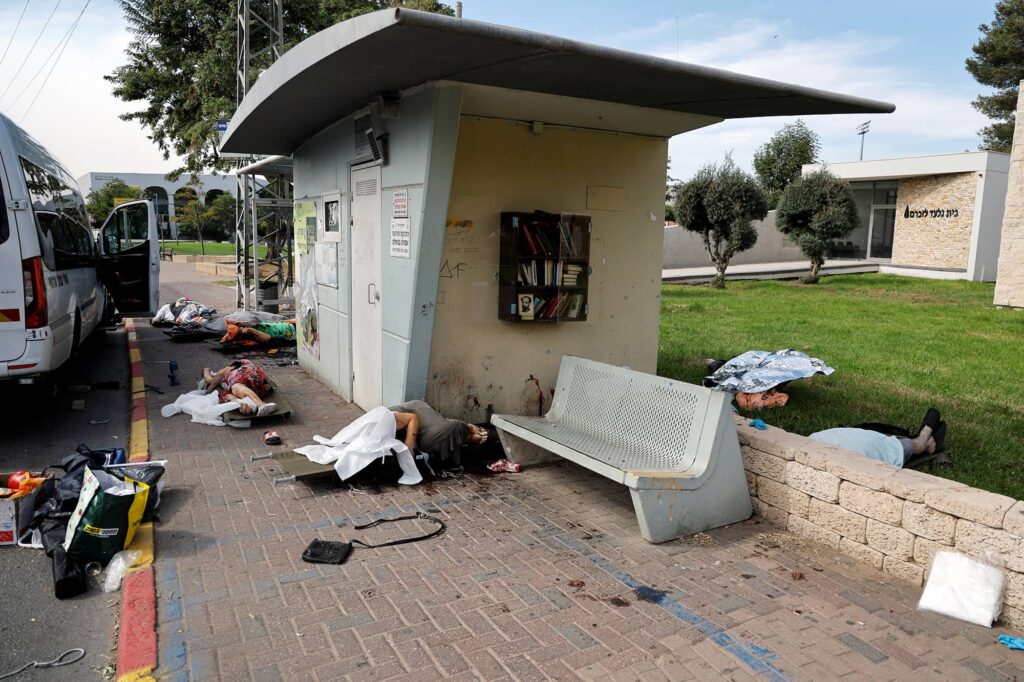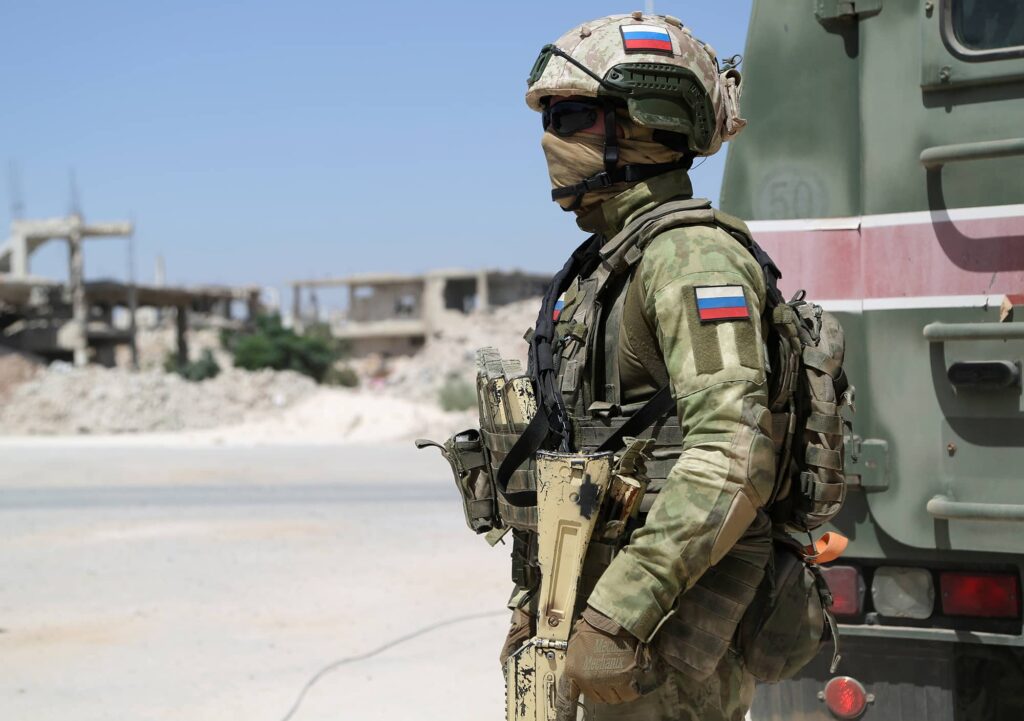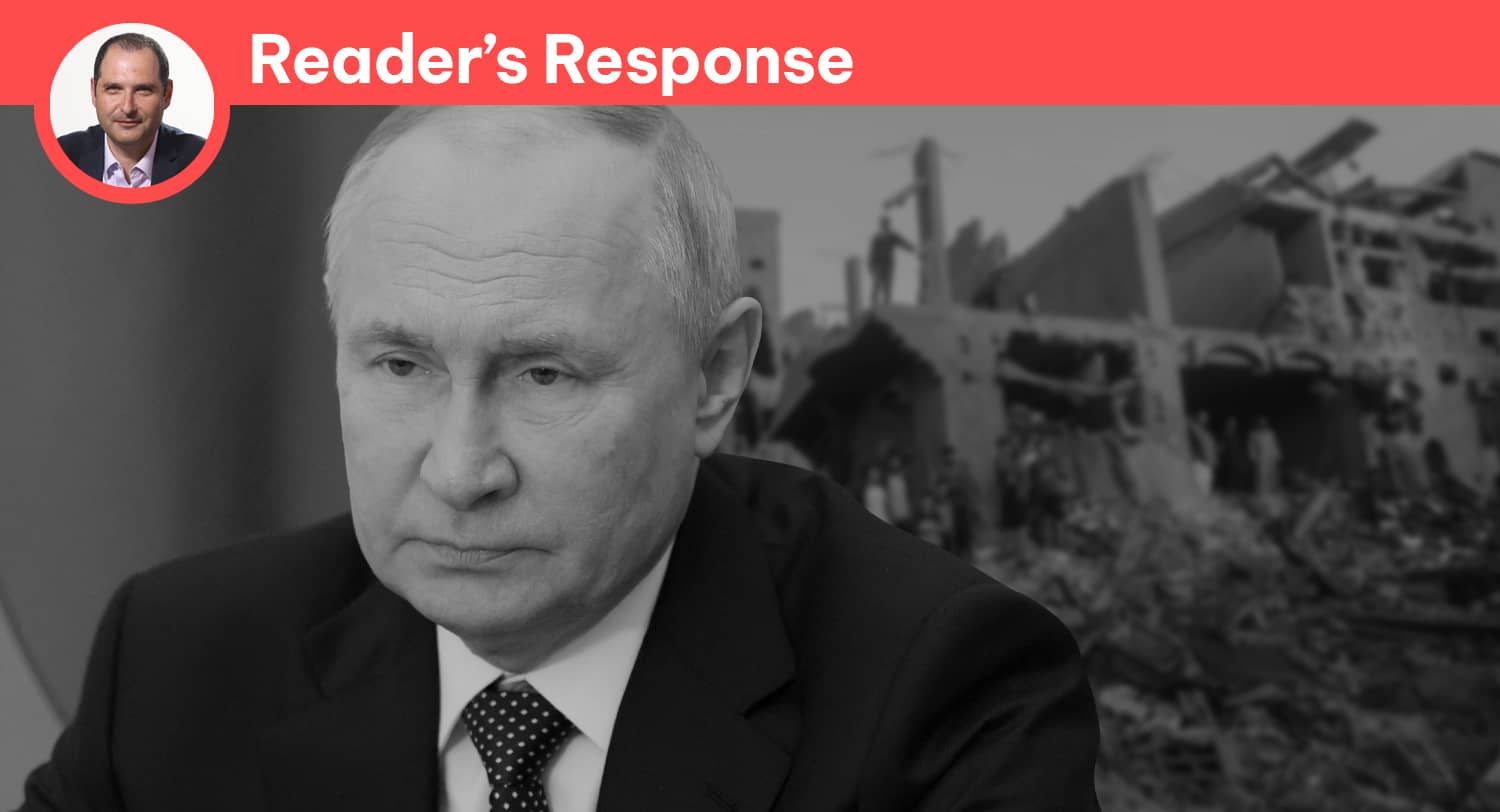The article by Stephen Blank of October 25, “Russia’s Role in the Gaza War,” provides much good evidence of Russia’s initial efforts to capitalize on the war for its own purposes. But that article may have overestimated the extent of Russian involvement in and influence over Hamas, Hizbullah and indeed over Iran. The Kremlin aspires to a greater role in the crisis that is important to its global interests, I believe Russia is a marginal player to date in this war and likely would only get more involved if its bases in Syria were threatened.
A Shift in Russian Public Positions During the War
During the first week of the war, Russia adopted a one-sided Palestinian narrative. The official Russian news agency RIA devoted more than a third of its stories and more than half of its daily op-eds to the war in Gaza, characterized by an anti-Israeli and anti-American theme. One op-ed stated that the West encourages Israeli genocide of the Palestinians and compared the Israeli leadership’s remarks about the attacks in Gaza to Hitler’s blessing of the Wehrmacht forces before invading the Soviet Union in 1941.
Russian social networks promoted pro-Palestinian propaganda, mocked Israel’s military might, and claimed that Israel belongs to the camp of Russia’s enemies. At the same time, Iran, Syria, Hezbollah, and Hamas were portrayed as Russian allies. Many commentaries feature antisemitic references and caricatures.
By October 13, however, Putin signaled a need to present a more balanced official position. He acknowledged that Israel had encountered an unprecedented attack in cruelty and scope and recognized its right to self-defense. However, he again failed to name Hamas as a perpetrator of the atrocities. He warned that Israel’s blockade of Gaza could be similar to the siege of Leningrad during World War II. On October 16, Putin expressed his condolences over the death of Israeli civilians in a conversation with Prime Minister Netanyahu as part of a round of phone calls with the leaders of Syria, Iran, Egypt, and the Palestinian Authority.
Since Putin’s October 13th signal, Russian official statements and state propaganda have adopted more balanced formulations, with less direct criticism of Israel and proposals for Russian engagement in ending the hostilities, release of the hostages, and reinvigoration of an Israeli-Palestinian peace process. This shift is in line with Russian media treatment of Israel for over a decade, part of Putin’s policy of keeping ties with Israel.

Russian Influence on Hamas?
Although several writers have suggested that Russia was directly involved in the Hamas invasion and could profit from it, there is no hard evidence of Russian foreknowledge, let alone planning this attack. Furthermore, Russian direct involvement is highly improbable for four reasons.
First, on the political level, Hamas-Russia relations lack any intimacy. The Hamas political wing had some contacts with the Russian foreign ministry but was suspicious of Moscow’s image as a pro-Israeli country.
Second, on the operational level, Russia, unlike the Soviet Union, does not provide extensive military aid or training without immediate gain.
Third, a proposal that Russia, preoccupied with the preparation and managing of the war in Ukraine, being watched closely and successfully by all the Western intelligence services, could succeed in a concealed multiannual endeavor to train Hamas for a risky attack against Israel contradicts everything we know about Russian military and its security services modus operandi. They are blunt and not subtle and suffer from bad operational security.
Fourth, and most importantly, it is hard to believe that Hamas could have kept the planned attack secret had it been shared with external state-actors. Senior figures in Hamas’ political wing claimed they had been updated only after the attack began. Even Iran and Hizballah, having a vested interest in defeating Israel, were not informed in advance, and there is an inconclusive debate considering their actual contribution to the entire operational plan.
However, Russian weapons may have reached Gaza through a third party (such as Iran), and some evidence has been published claiming that Hamas used to launder money through the Russian financial system.
Some analysts believe Russia could play a significant role in a scenario of Israel’s confrontation with the Lebanese Hizballah owing to Russian military assets in Syria and the Eastern Mediterranean. However, three weeks of medium-intensity warfare between Israel and Hizbullah, backed by Iran, have passed without a shift in Russian military posture. Russia has not brought more troops into the region and continues to turn a blind eye to Israel’s attacks in Syria.
Russia’s main national interest in the Middle East remains to sustain its military bases in Syria, secured by the Assad regime. It possesses the ability to put obstacles before Israeli air operations in Syria but apparently postpones such measures pending a clear danger to its survival. As in the past, Russia is unwilling to endanger its troops in defending Iranians or Hizbullah fighters. Moscow and Tehran coordinate politically, but Russia lacks direct influence mechanisms on Hizbullah.

Summary: A Marginal Player
Russia tries to portray itself as a champion of the Palestinian cause. Still, it has suffered like other international actors from Palestine-fatigue over the past decade. It doesn’t have significant levers over the Palestinians, and almost none vis-à-vis Hamas in Gaza. Therefore, Russian proposals for political or major hostage release mediation are irrelevant. It might get a small number of hostages holding a dual Russian-Israeli citizenship as a quid-pro-quad for its legitimization of Hamas.
The Kremlin analyzes the Gaza war mainly from the perspective of great power competition. It helps to distract the US and the Western countries from Ukraine and obstruct the flow of military and financial aid to Kyiv. The pro-Palestinian sentiment in Western countries might be exploited for internal destabilization campaigns and help Putin to improve Russia’s image in the Global South.
The war in Gaza proves Russia has little leverage in the Middle East as long as it is bogged down in Ukraine. Russia lacks surplus weapons for warring parties. The diplomatic arena and information domains are Russia’s foremost playgrounds. It may get more active, if there is a threat to the Assad regime, but it cannot influence the major players or the dynamics of the crisis.



